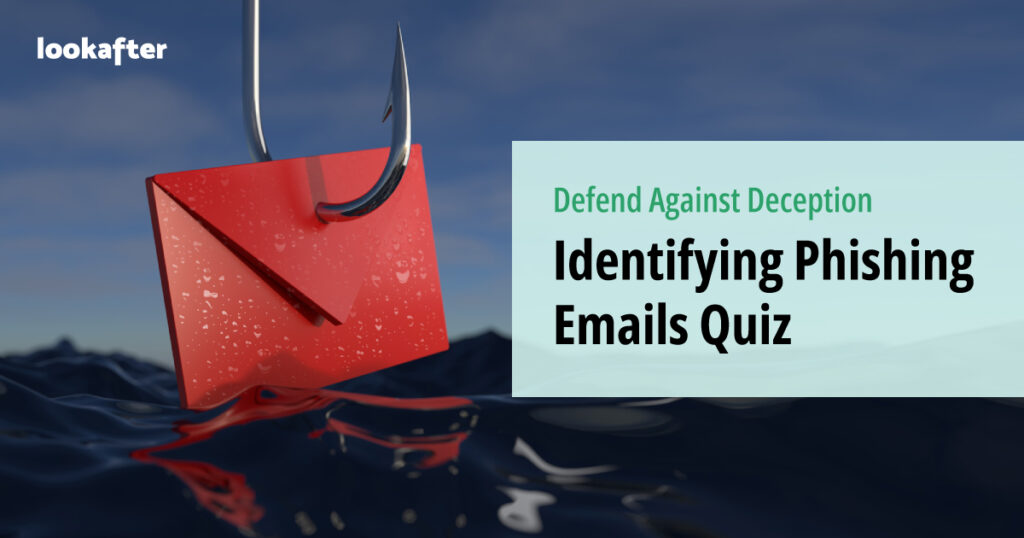Home > Empowering Tips > Defend Against Deception: Identifying Phishing Emails Quiz

Phishing attacks are a common threat in the digital age, and they often target unsuspecting individuals through deceptive emails designed to trick them into revealing sensitive information or falling for scams. But knowledge is our best defence. To help you sharpen your skills in identifying and thwarting phishing attempts, we’ve created an engaging quiz below. Test your ability to distinguish between legitimate emails and malicious phishing attempts as we explore common scenarios in this short quiz.
For each scenario, determine if it’s a phishing email or a legitimate email:
#1. You receive an email from “yourbank@gmail.com” asking you to update your account information to avoid suspension.
#2. You receive an email from a shipping company, asking you to click on a tracking link for a delivery, but you’re not expecting any packages.
#3. You receive an email from your company’s HR department requesting your password to update your payroll information.
#4. An email from your favourite social media platform notifies you of a suspicious login attempt from an unrecognized device and asks you to click a link to verify your account.
#5. Your email provider sends you a message about a scheduled maintenance window and advises you to expect temporary service disruptions.
#6. You receive an email from a colleague claiming they urgently need your bank account information to process a payment.
#7. A colleague emails you a document with the subject “Project Meeting Notes” that you were expecting.
#8. You get an email from a charity organization asking for a donation by clicking a link and providing your credit card information.
#9. You receive an email from your supervisor, urgently requesting payment for an invoice that you do not recognize.
#10. Your electricity provider sends an email regarding a planned outage in your area and provides details about the maintenance.
Results
Congratulations on completing the Identifying Phishing Emails Quiz! Your score indicates that you have a good understanding of identifying phishing emails, but there’s always room for improvement. You’ve scored above 80%, which is a positive sign. Keep honing your skills to become even more proficient in recognizing potential threats in your inbox. Stay vigilant, and remember to verify suspicious emails to ensure your online safety. Great job, and keep up the good work!
Thank you for taking the Identifying Phishing Emails Quiz. Your score indicates that there is some room for improvement when it comes to identifying phishing emails. Phishing attempts are common, so it’s essential to stay vigilant and protect your online security. Don’t be discouraged by your current score. You can improve your ability to recognize phishing emails by learning more about common phishing tactics and staying up-to-date with security best practices. With a bit more knowledge and practice, you’ll become more confident in identifying and avoiding phishing attempts.



